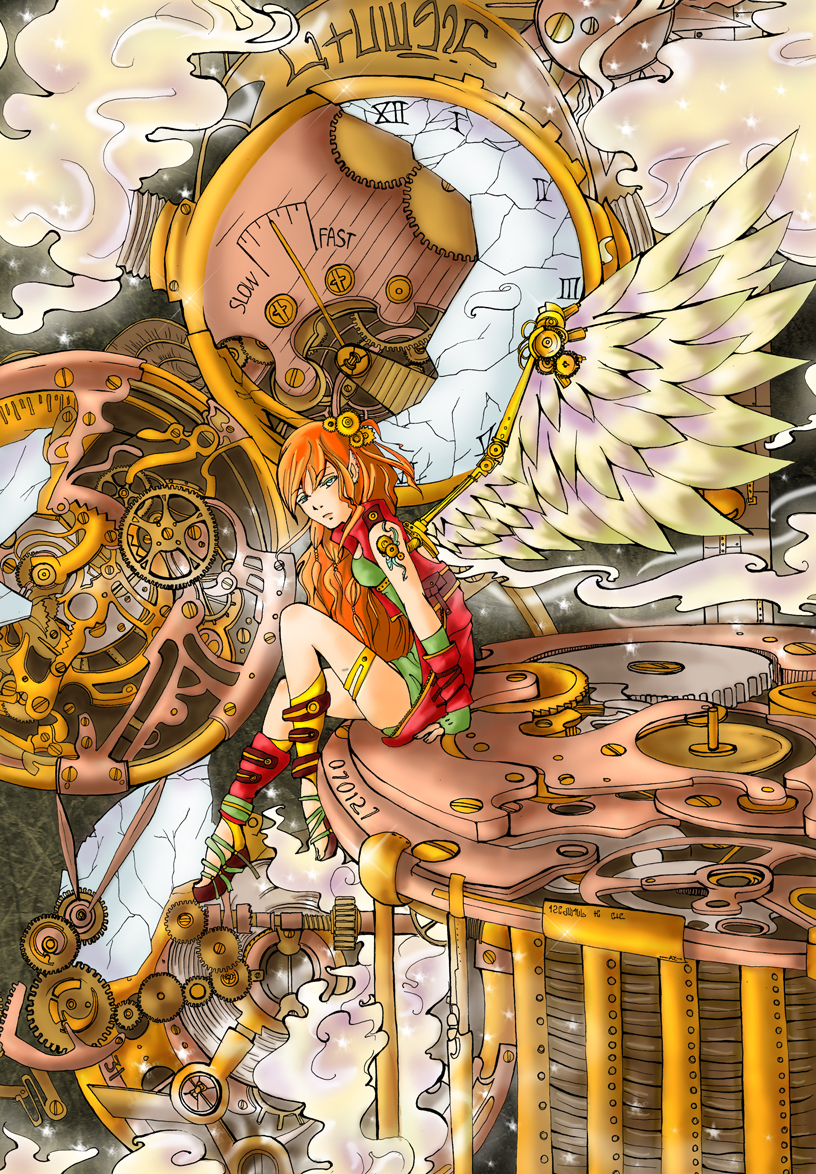Eleven years ago now I started a blog called Going On, a memoirish approach to blogging, and then switched over to Lutheran Confessions in the fall of 2003, originally with the intent of team writing a blog with (now) Dr. Gregory Walter of St. Olaf on the Lutheran confessional documents. After a while I became the sole contributor to the blog, and it has become a catchall for me as a blogger. There's theology, but there's also much more.
Because blogger is cool-like-that, I can dredge up what I wrote on this blog way back then. Below is the fourth post ever posted on Lutheran Confessions, dated third day of Christmans, 2003.
Coincidentally (or not, as the case may be) lots of folks have been asking me about angels lately. I'd say this post, written way back then, still stands as a fairly balanced summary of what I think and believe about angels even now. So I'm happy to re-post it with no edits:
--
Barth and the Angels
There are a lot of quotes from Greg that I remember and carry around with me. One was a couple of years back in reference to Barth's angelology. If I remember the quote correctly, it went like this, "Barth ends up handing over all the ministry he had so carefully placed in the hands of Christ to the angels. They end up doing everything." After having now read Barth's doctrine of angels in his Creation section of Church Dogmatics, I agree.
Barth does do a thorough job (when is Barth not thorough?) of setting out the complexities of the doctrine of angels, and does bring the doctrine back from its metaphysical explorations in the hands of Aquinas, among others. Jensen sympathizes with Aquinas on this point, because he believes Aquinas needs to go in the direction he does on the doctrine of angels in order to fill out his system, but this is not an excuse, exactly, if indeed, as Barth rightly asserts, the point of an angelology is to explicate what angels are and what their ministry is according to the Scriptural witness. The angels are particularly at risk of us ascribing to them things they are not according to our systems, needs, and mythologies.
Barth proposes to take the middle road between a) the "shrug of the shoulders" theology that amounts to a demythologizing and denigrating of the reality of and/or ministry of angels, and b) all those remythologists who seek to construct circles and levels of angels going about doing various things, things apparently the remythologizers can peer into and know something about.
Barth's middle way is the way of witness. Angels are witnesses, not surprising given that all parts of creation, in Barth's theology, need and must be witnesses (Barth succumbing to his own "system"?). Throughout his explication, we get golden nuggets, exegetical insights and reflections worth all the pages of reading.
Some examples:
Luther's evening and morning prayers contained in the Small Catechism have what Barth calls the doctrine of angels in miniature. The conclusion of each prayer reads: "Let your holy angels have charge over us, that the wicked one have no power over us." Emphasis on your> holy angels, namely the Lord's.
Angels appear at the beginning and end of Christ's earthly ministry, but play little or no role during that same ministry. They function as book ends, and get out of the way when Christ himself is his own witness. They appear again in Acts once Christ has ascended, and play an important role in apocalyptic. Barth reads this appearance/absence motif into and part of his theology of angels as witnesses.
*** A worthy and helpful corrective to this 2nd point in Jensen's in the 2nd volume of his Systematics, where he sees the function of angels as working where the ministry of God in Christ is "marginal" or at risk. Thus at his birth, at the end of his 40 days in the desert, at his resurrection, and during the early ministry of the apostles. In this way, the angels are witnesses but also participants in God's ministry of reconciliation (I may be reading some things into Jens at this point, but that's my read, anyway).
Barth and Jens are most helpful on angels by making them preachable. We can preach on the ministry of angels in relation to the ministry of Christ, and need not make them independent locuses for preaching and prayer in their own right. This is in keeping with the infrequent but important references to angels in the confessional documents. It seems also to be in keeping with Luther's own prayer life, who did not pray to angels, but prayed to God that angels would minister to him and encouraged others to pray the same.
--
Quite recently, and illustrating the durability of creative friendships, I have started a new blog with friends called http://steampunktheology.blogspot.com. You can find some angels there if you look. The steampunk angel in this post was not in the original.

No comments:
Post a Comment